-
News & Events

From June 24 to June 28, the China Tour of Fellow of the German National Academy of Sciences Leopoldina 2024 is held as planned at the Jiangmen Wuyi Hospital of Traditional Chinese Medicine. After half a year, Prof. Bähr, a member of German Academy of Sciences Leopoldina and the Director and Chair of the Department of Neurology at the University Medical Center Göttingen, gave a return visit as a visiting professor and conducted a series of academic exchanges activities.
Welcome Ceremony
The hospital executives and the team of Neurology, led by ZHANG Ling, Party Secretary of the hospital, held a welcome ceremony for Prof. Bähr.
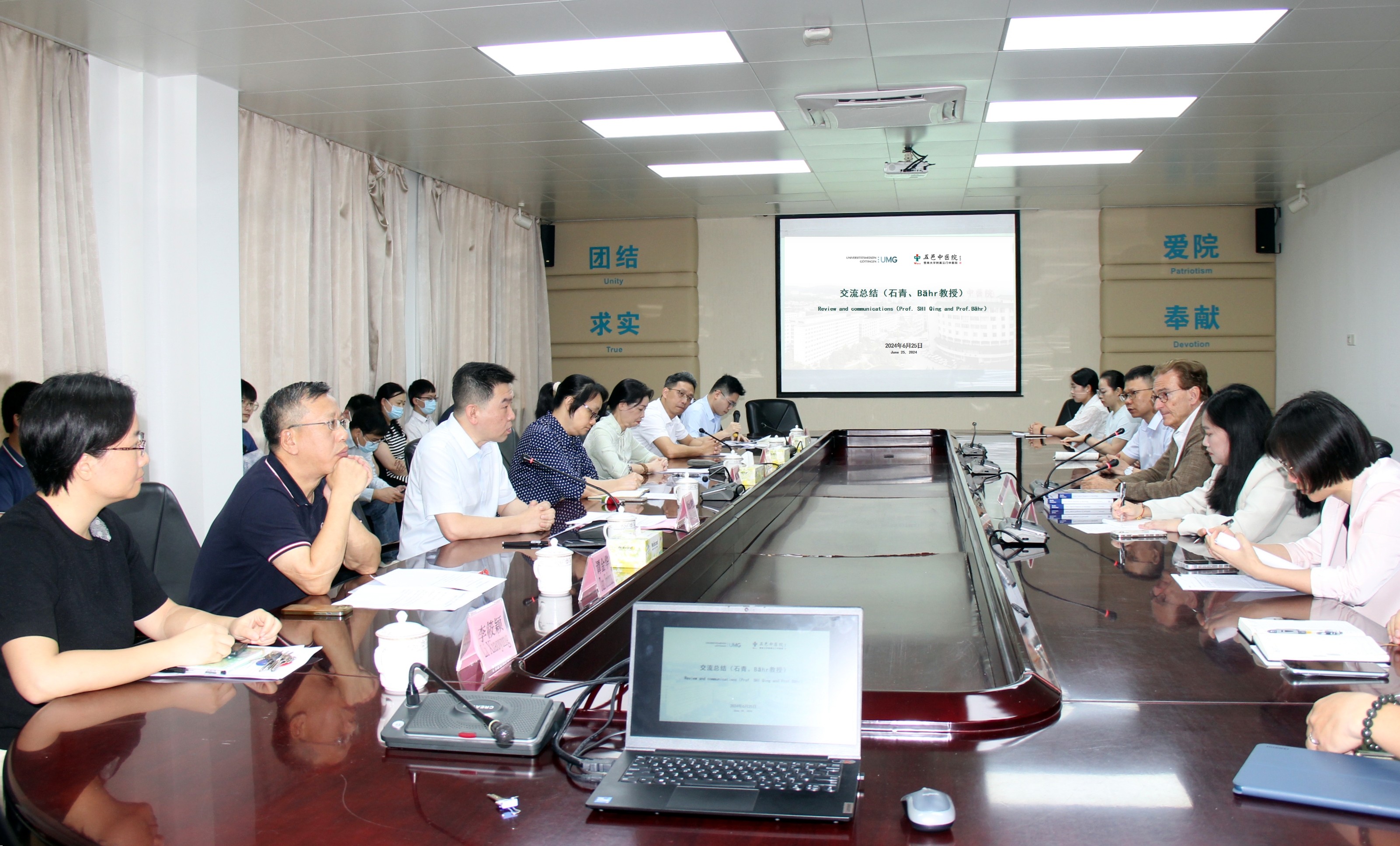
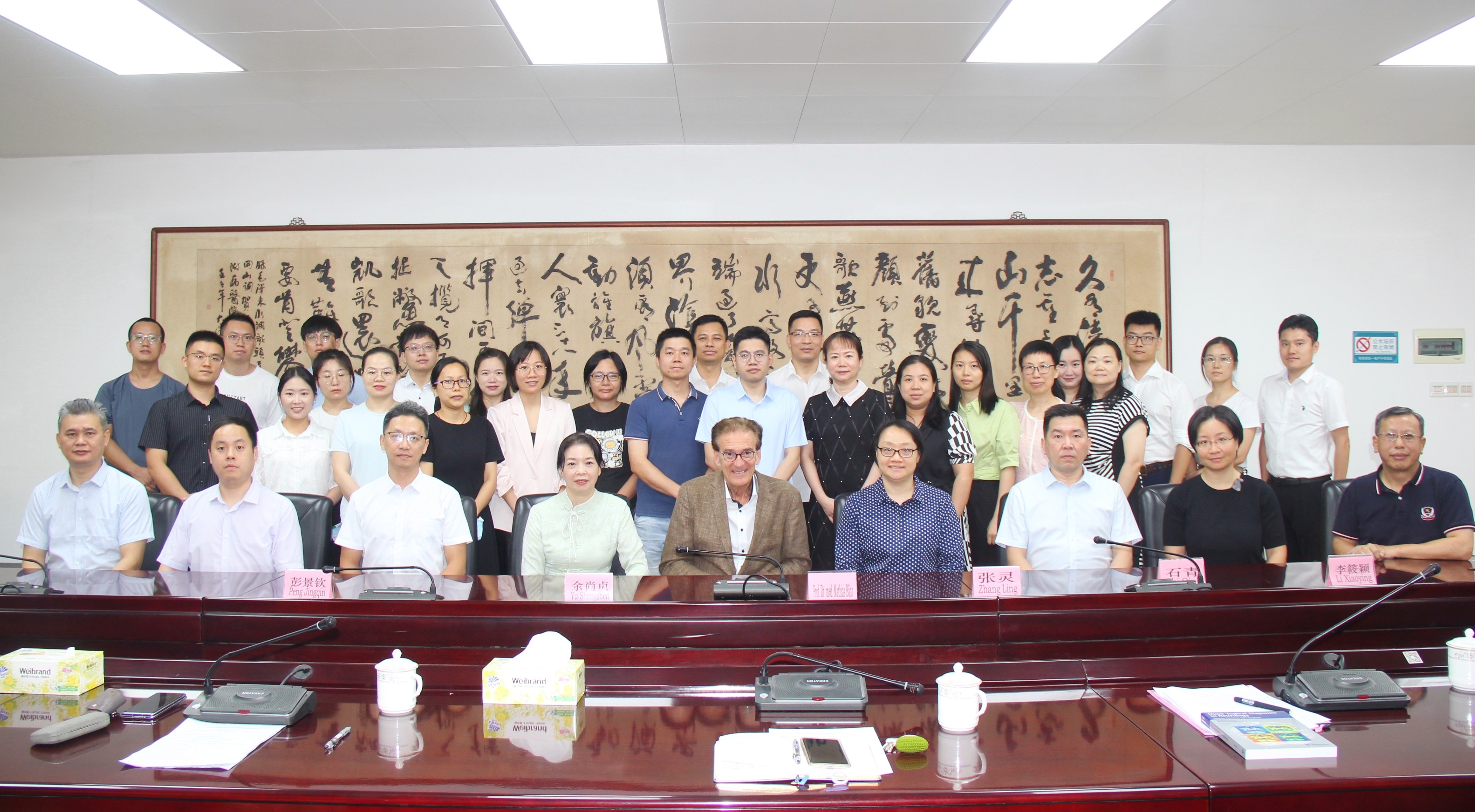
Vice President YU Shangzhen delivered a welcoming speech.
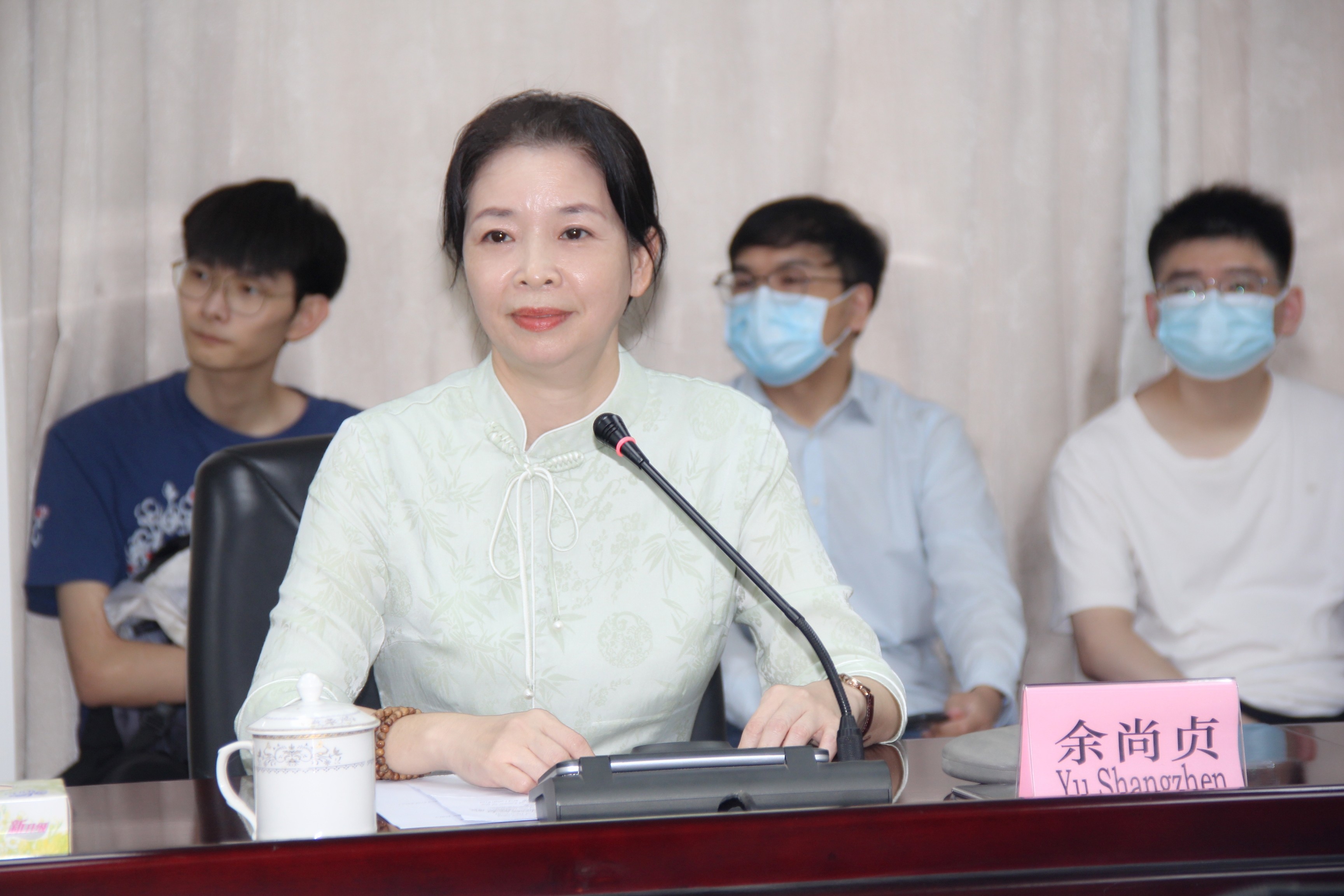
SHI Qing, Director of the Department of Neurology, summarized the 2023 visit and the work over the past six months. Director SHI noted that although Prof. Bähr’s one-week visit was brief, its impact on the work of department was profound. Over the past six months, they had further studied functional neuroanatomy diligently, enhancing their skills in physical examination and image interpreting. Moreover, based on Prof. Bähr’s suggestions, they embarked on research endeavors grounded in clinical practice. After Prof. Bähr’s visit in 2023, the postdoctoral fellows of this department were deeply inspired with regards to scientific research, successfully got funding from the National Natural Science Foundation of China and China Postdoctoral Science Foundation.
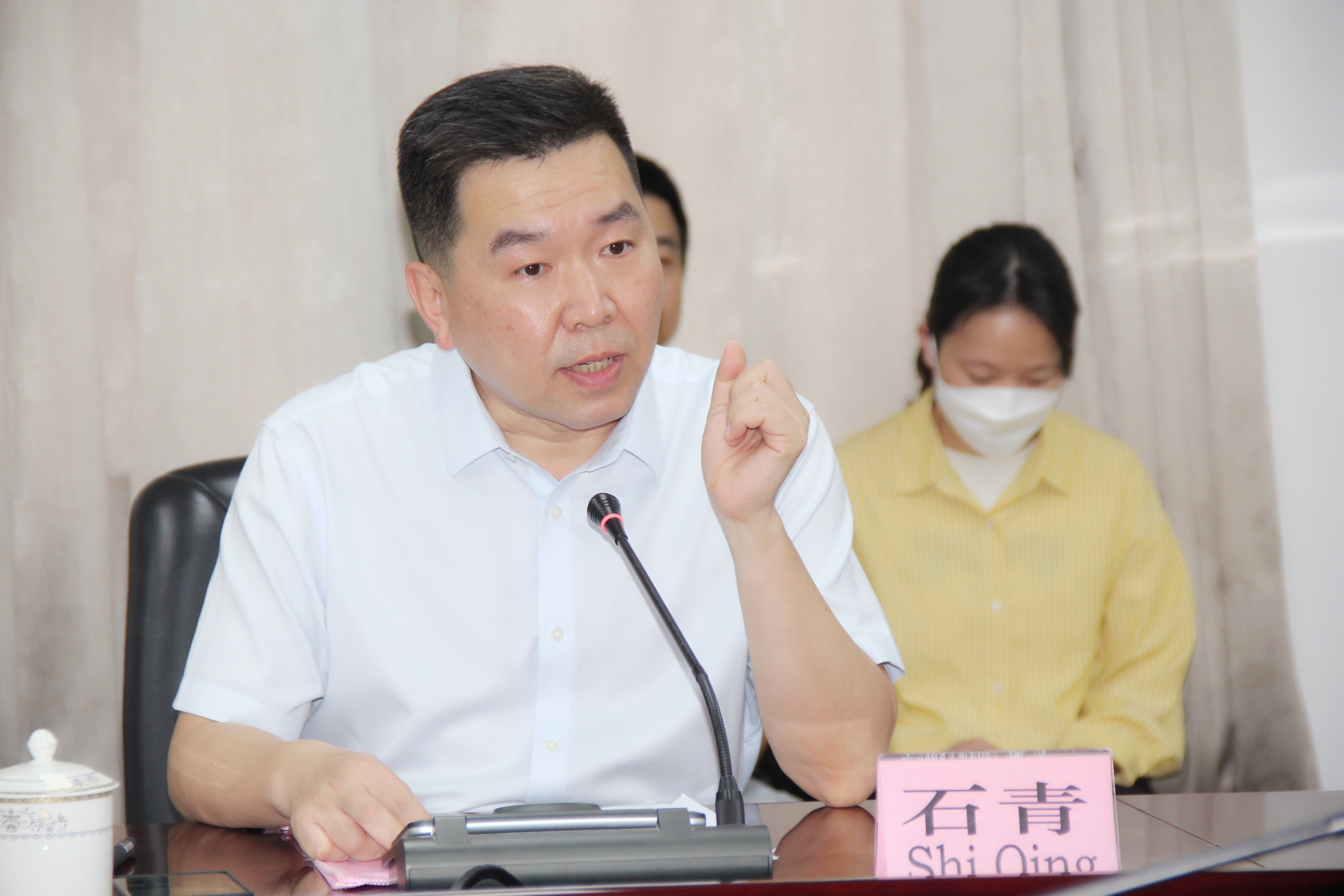
Prof. Bähr remarked that through mutual efforts over the past six months, the University of Göttingen has officially admitted CHEN Jianhua from the Department of Neurology as a doctoral student. Doctor Chen is scheduled to fly to Göttingen in July to begin his three-year study doctoral studies. Prof. Bähr hopes that Doctor Chen will contribute to improve the clinical diagnosis and treatment, as well as the quality of scientific research of Neurology in Jiangmen, after his returning to China.
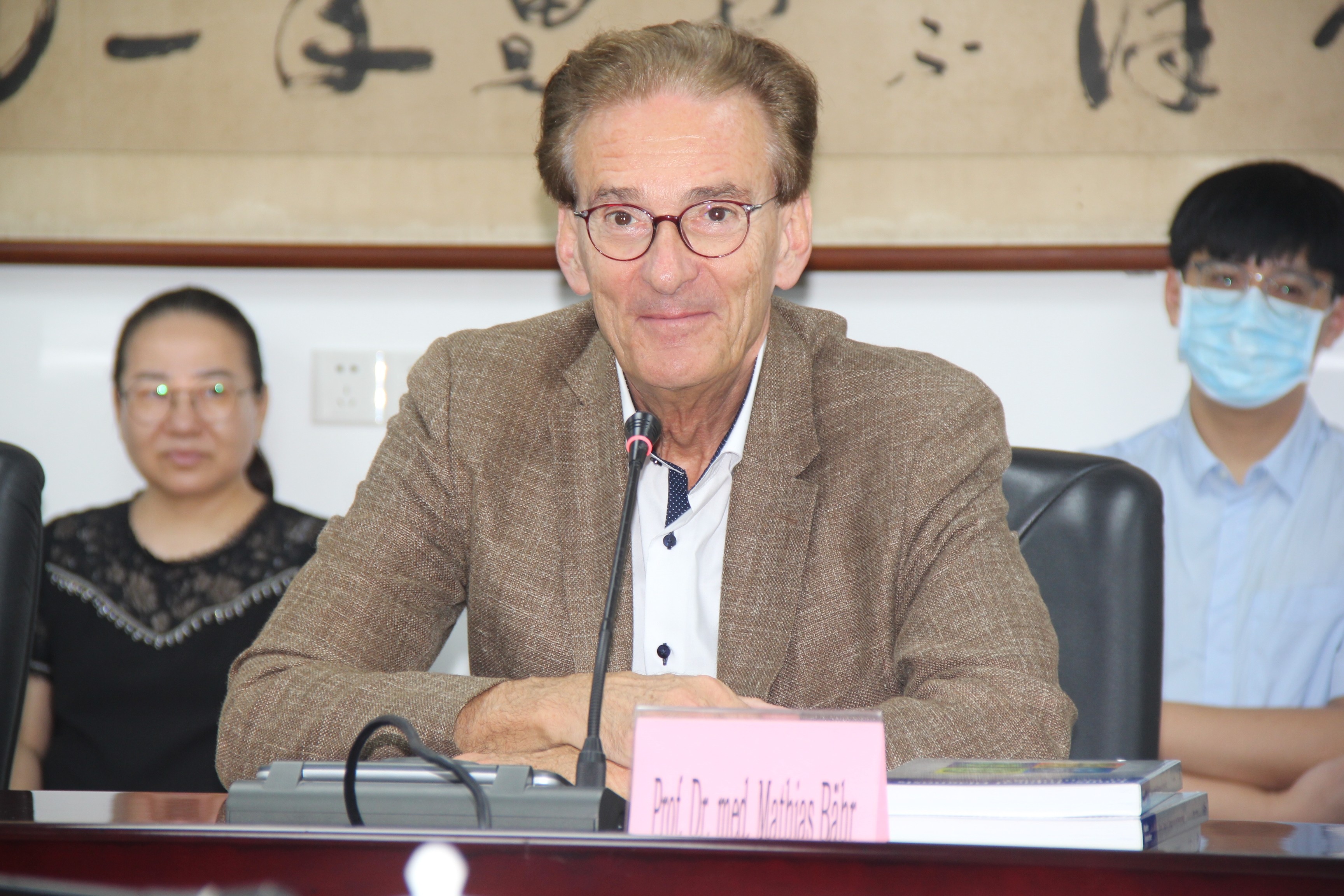
Furthermore, Prof. Bähr brought three English versions of his book “Topical Diagnosis in Neurology: Anatomy, Physiology, Signs, Symptoms” from Germany and autographed them as a gift to the Department of Neurology, hoping they can develop a deeper understanding of functional neuroanatomy.
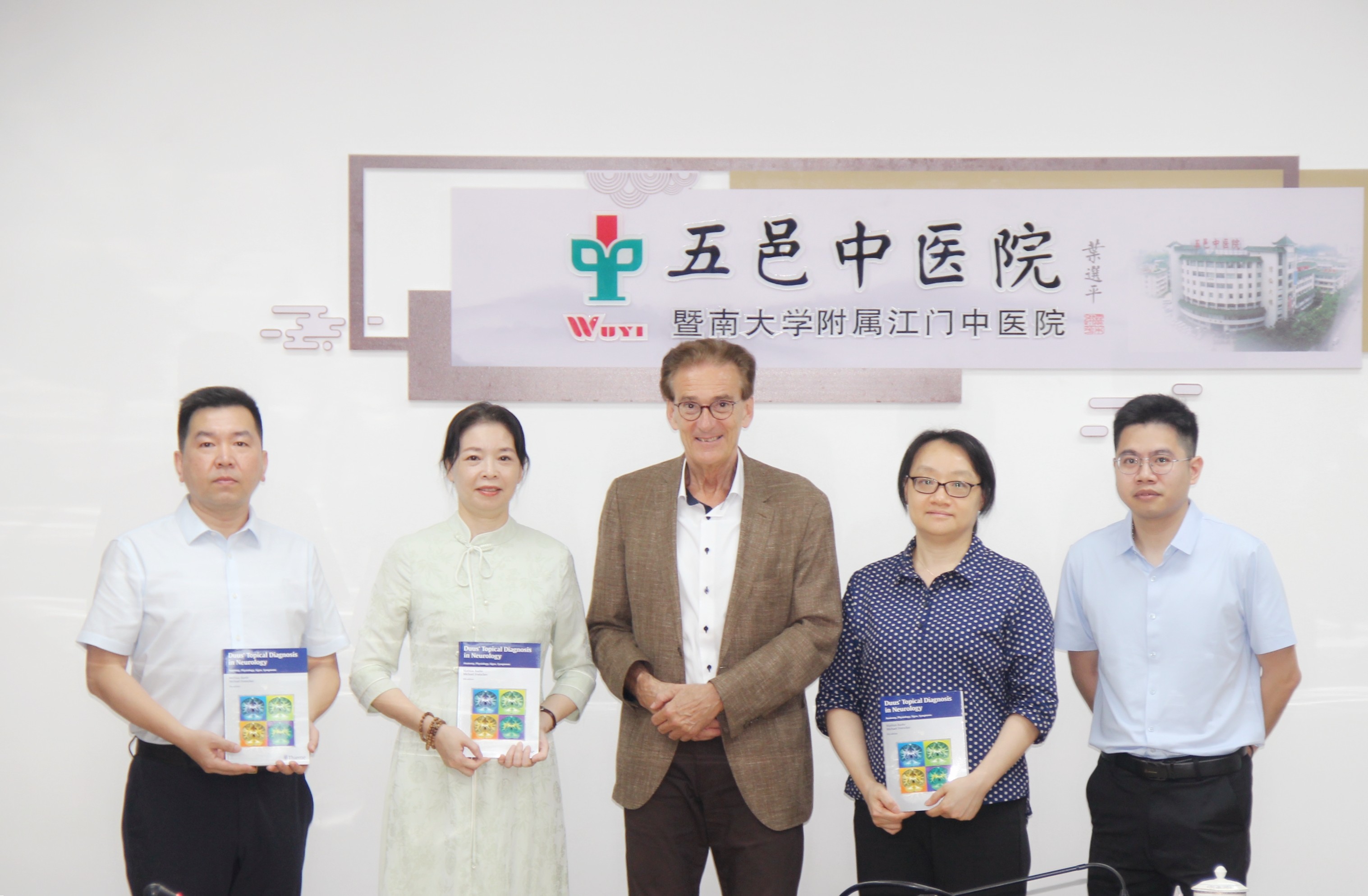
After the welcoming ceremony, Dr. HU Shaowen and Dr. LIU Jinman, postdoctoral fellows from the Department of Neurology, reported the latest progress of the two projects funded by the National Natural Science Foundation of China and China Postdoctoral Science Foundation. Prof. Bähr provided detailed comments and suggestion for further research.
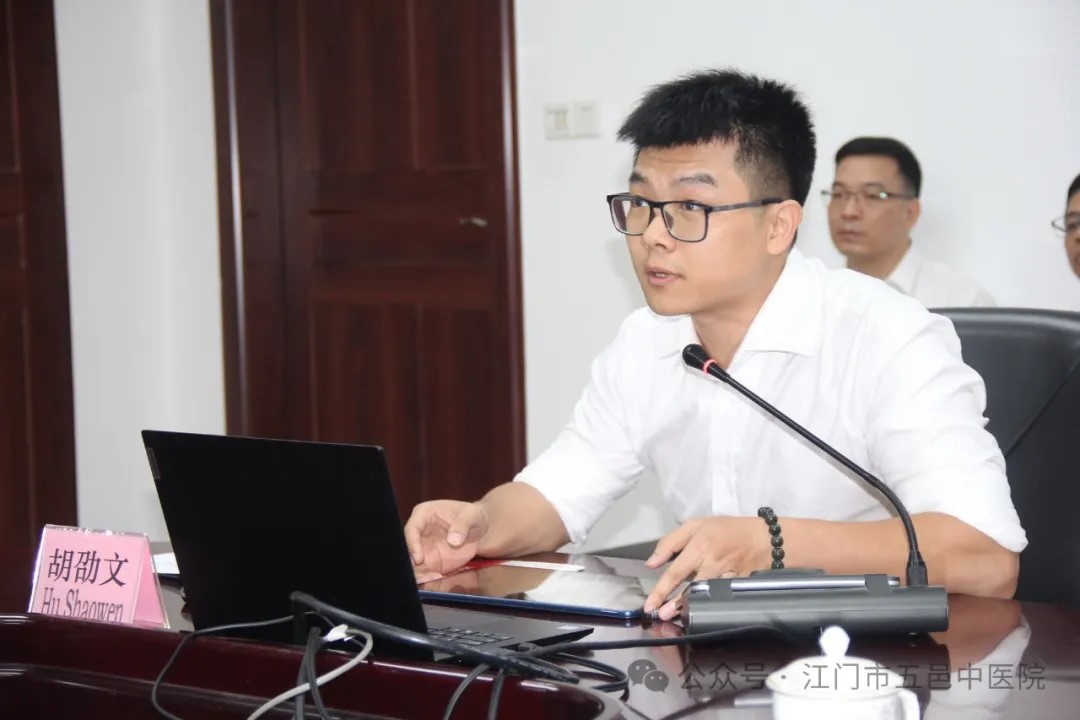
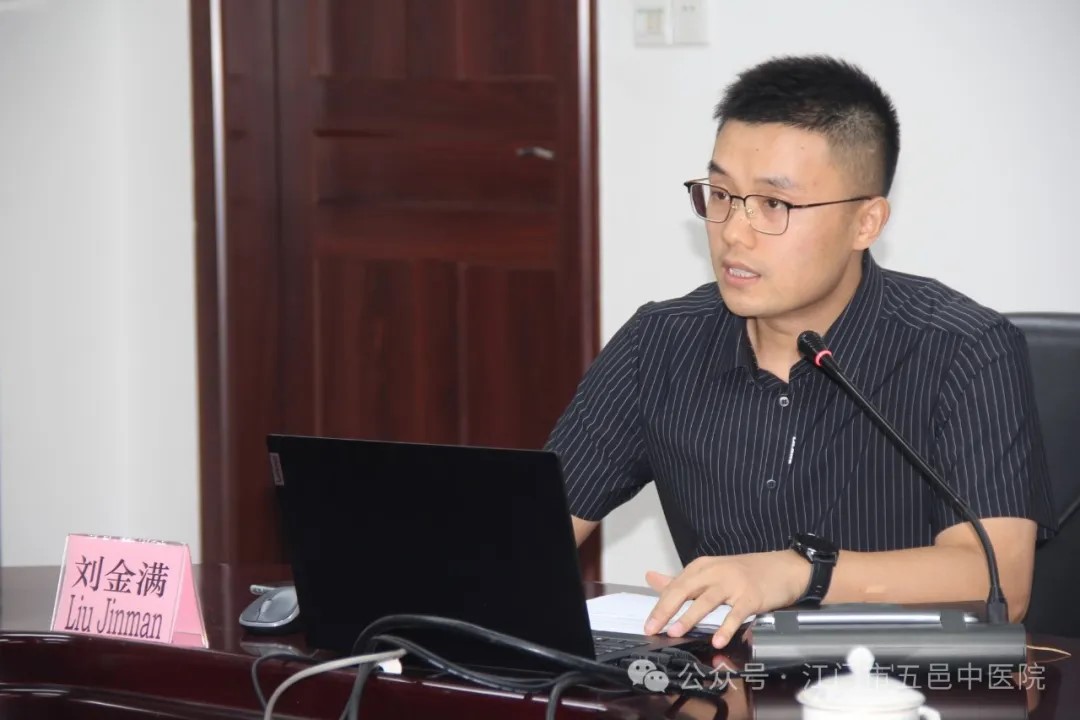
Teaching at Outpatient Consultation
Prof. Bähr offered teaching outpatient consultation every morning during his visit. All young physicians in the Neurology Department participated in this teaching clinic and briefed each patient in advance to facilitate the whole process of the consultation. For each patient, Prof. Bähr gave detailed physical examinations, consultation, interpretation of the radiographic images and lab test results, assessment of the patient’s condition, answered their questions, and put forward suggestions for further plan for diagnosis or treatment. Prof. Bähr encouraged young doctors to engage and think more with elicitation teaching and demonstrated the standardized diagnosis and treatment process of Neurology.
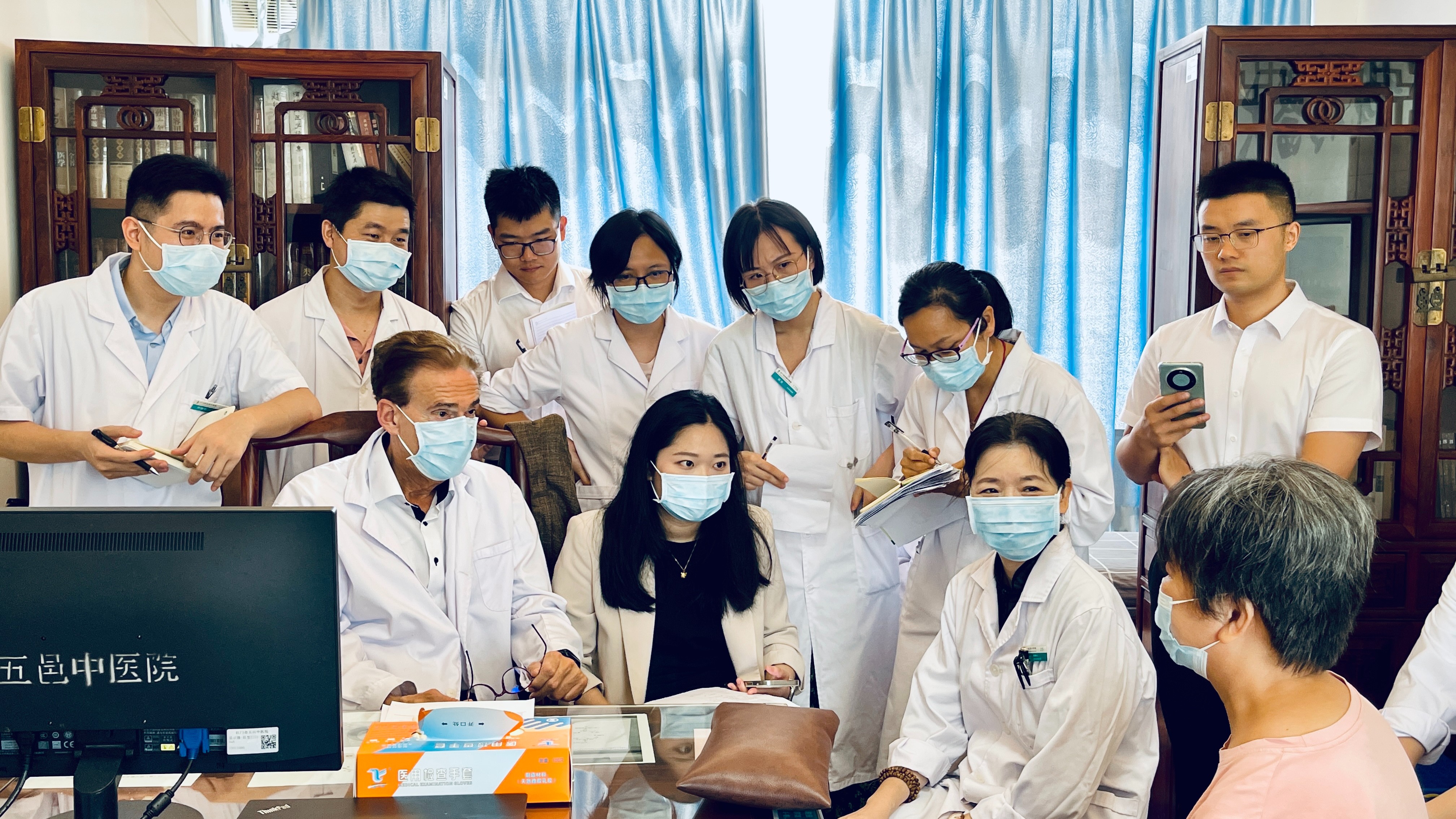
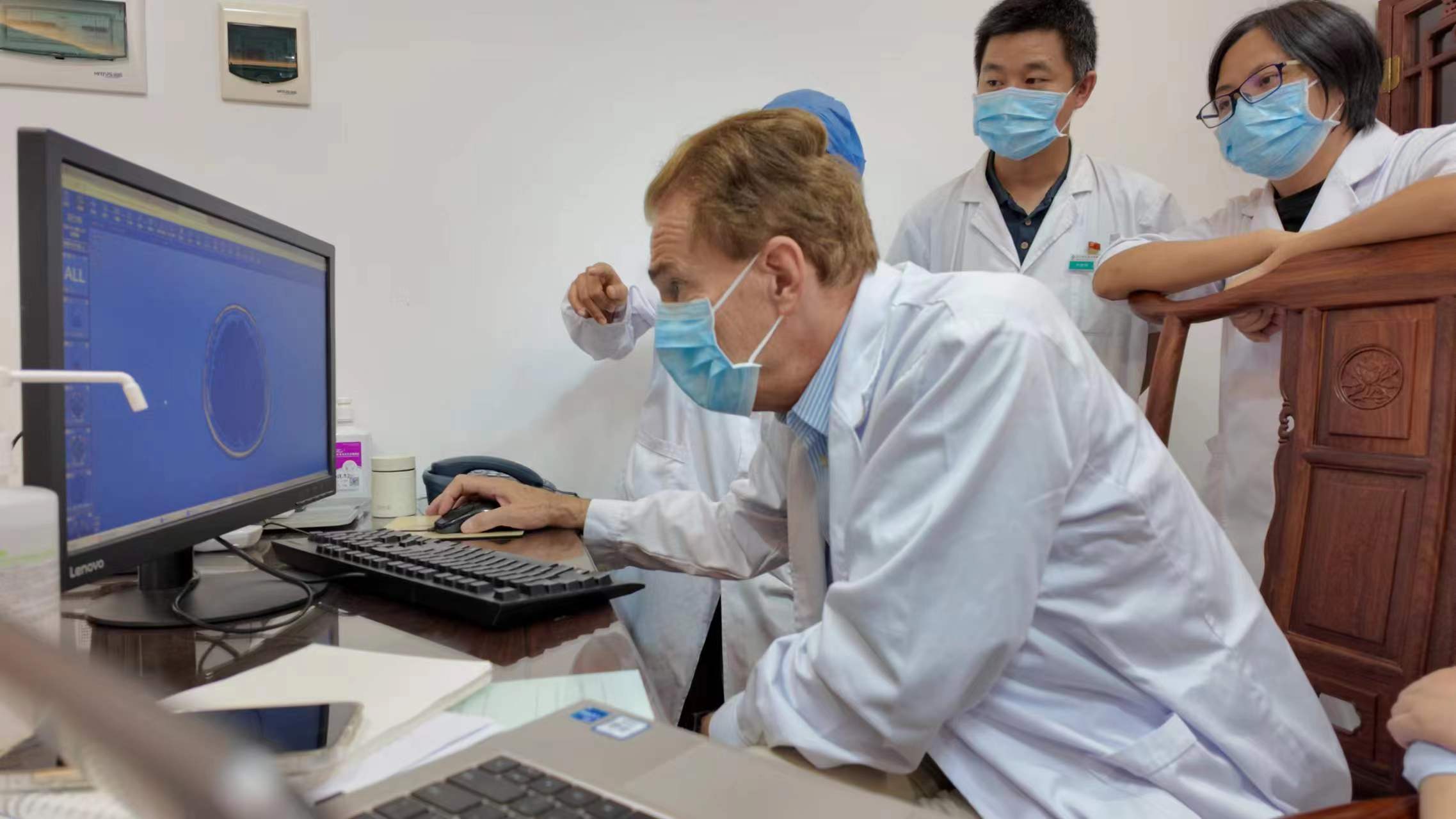
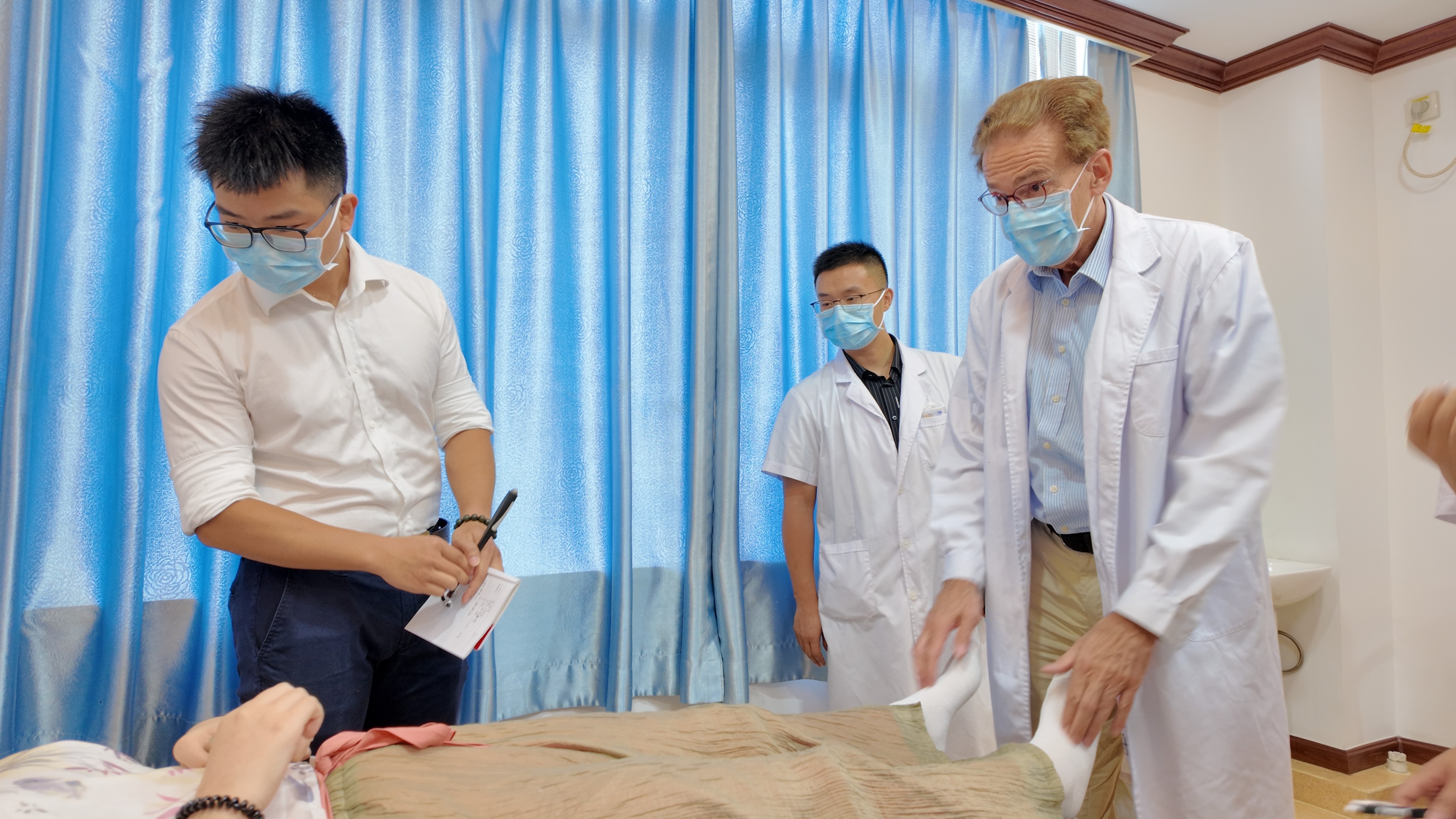
Update on Multiple Sclerosis
In the afternoon of June 26, Prof. Bähr held an internal teaching lecture in the Department of Neurology. Taking the case of Multiple Sclerosis (MS) received in the morning as a starting point, Prof. Bähr delivered a lecture titled “Update on Multiple Sclerosis.” The early disease characteristics of multiple sclerosis, such as relapse frequency and the number of MRI lesions, are respectively associated with disability progression and conversion to SPMS (secondary progressive MS).
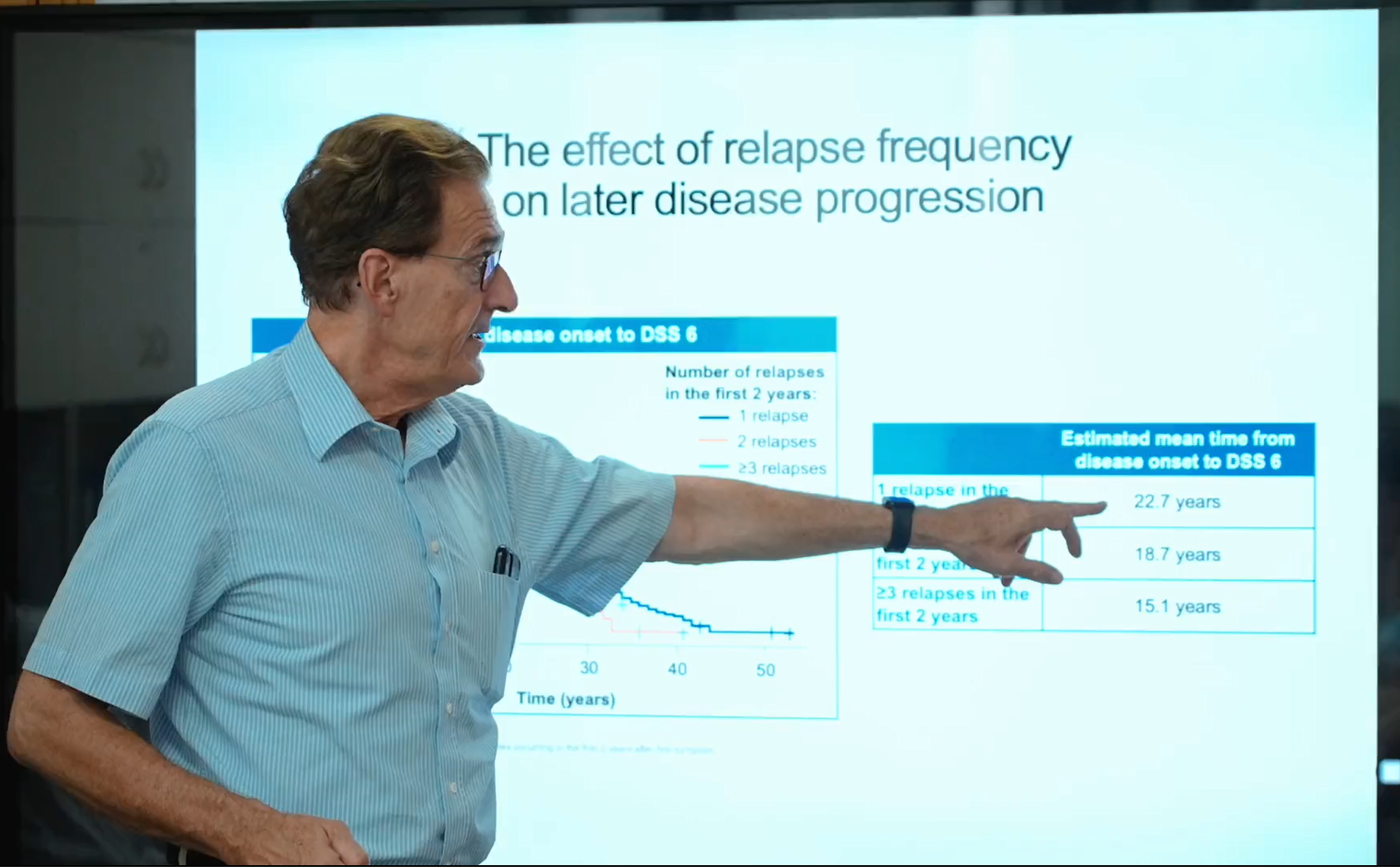
Delayed treatment following MS onset increases the risk of progression to EDSS score four by 7.5% per year, while early treatment can reduce the risk of conversion to SPMS. Compared to milder treatments such as GA or IFNβ, initial high-efficacy treatment can significantly reduce the risk of conversion to SPMS by 34%.
The future treatment concept of MS is personalized therapy, which should take individual disease-driving mechanism, drug efficacy, and mechanism of action into consideration to select medications. It should also decipher heterogeneity of MS pathogenesis and stratify patients by their disease-driving mechanism, and develop strategies to predict a personal treatment response to an individual medication. In summary, early implementation of a highly effective treatment is desirable in MS, long term safety and tolerability is key to prevent continuous accumulation of disability over decades. Considering all these factors, from the current perspective, ofatumumab is a promising candidate to fulfil these requirements.
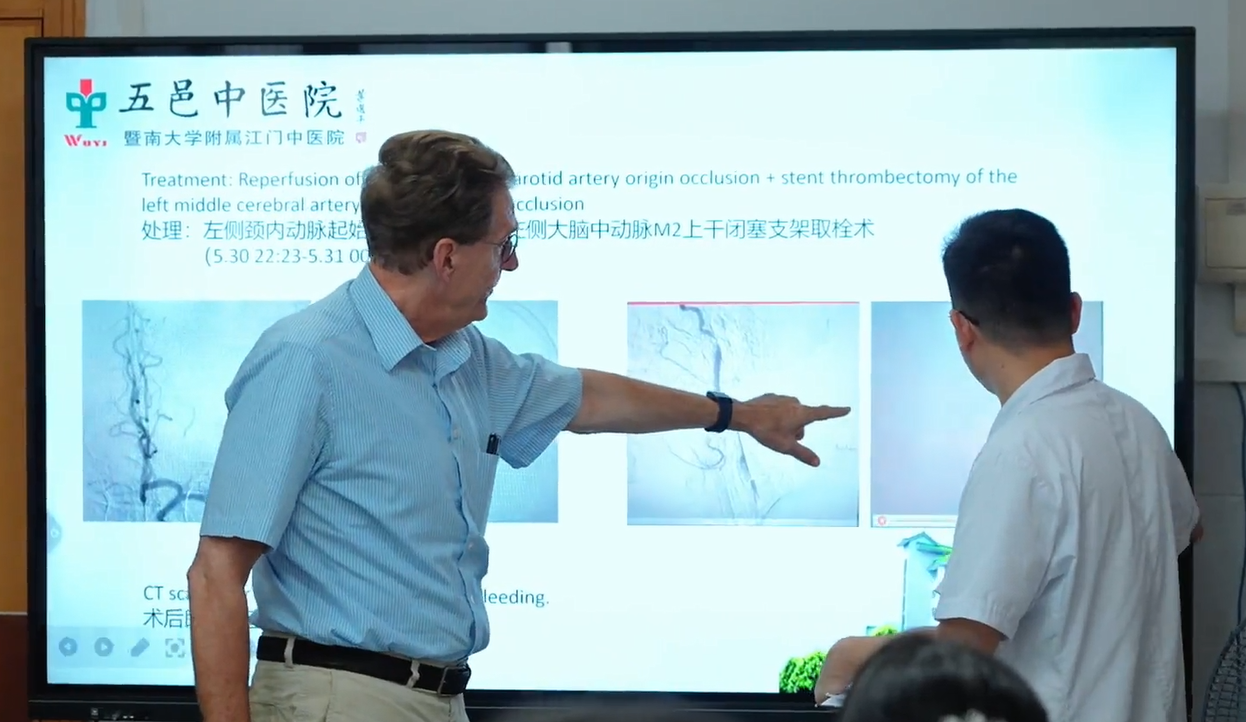
In the following case discussion, Doctor CHEN Jianhua from the Department of Neurology presented a case of hemorrhagic transformation after thrombolysis for acute cerebral infraction and a case of endovascular therapy for acute cerebral infraction after hip replacement in English.
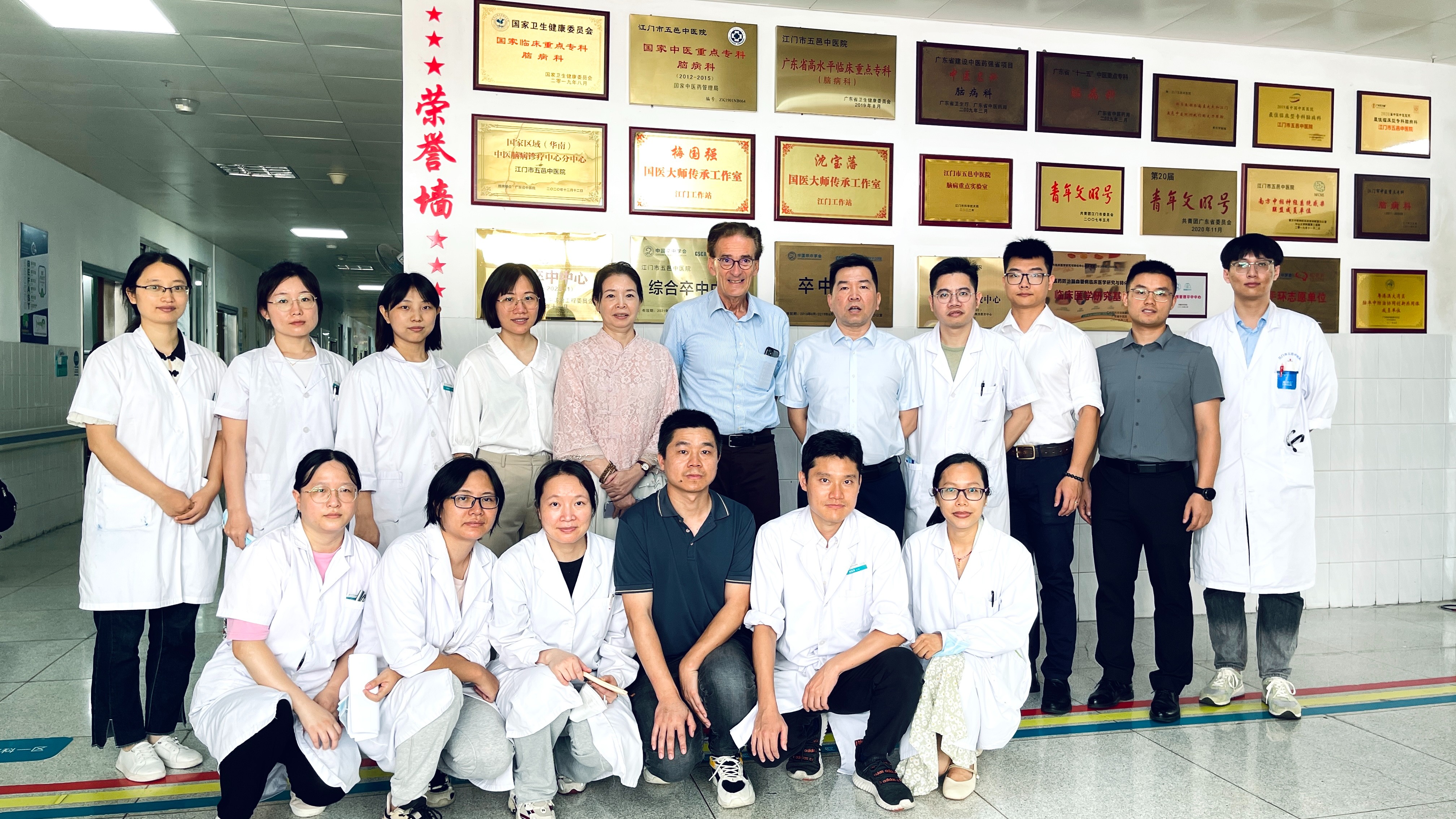
Led by YU Shangzhen, Vice President of hospital, and SHI Qing, Director of the Department of Neurology, the team of Neurology discussed these two cases with Prof. Bähr. Finally, Prof. Yu Shangzhen made a summary, acknowledging the elaborate preparation and highly engagement of young physicians in today’s teaching activities and encouraging them to apply what they have learned this week seriously to their daily clinical work.
Public Lecture
On June 27th, the Public Lecture by Prof. Bähr - China Tour of Member of German Academy of Sciences Leopoldina 2024 was held at the Jiangmen Wuyi Hospital of Traditional Chinese Medicine. Attendees included Prof. Bähr, ZHANG Zhijun, Deputy Chief of Jiangmen Talent Work Bureau, PANG Jinshan, Deputy Chief of Jiangmen Science and Technology Bureau, LIANG Nanling, Deputy Chief of Jiangmen Health Bureau, ZHANG Ling, Party Secretary of the Wuyi Traditional Chinese Medicine Hospital, Jiangmen, ZHANG Guanghua, President of Hospital, YU Shangzhen and HE Mingliang, Vice Presidents of the hospital, members of the Department of Neurology, together with clinical and admin chiefs from different departments of the hoospital. The meeting was moderated by SHI Qing, Director of the Department of Neurology, and YU Shangzhen, Vice President of hospital, delivered the welcoming speech.
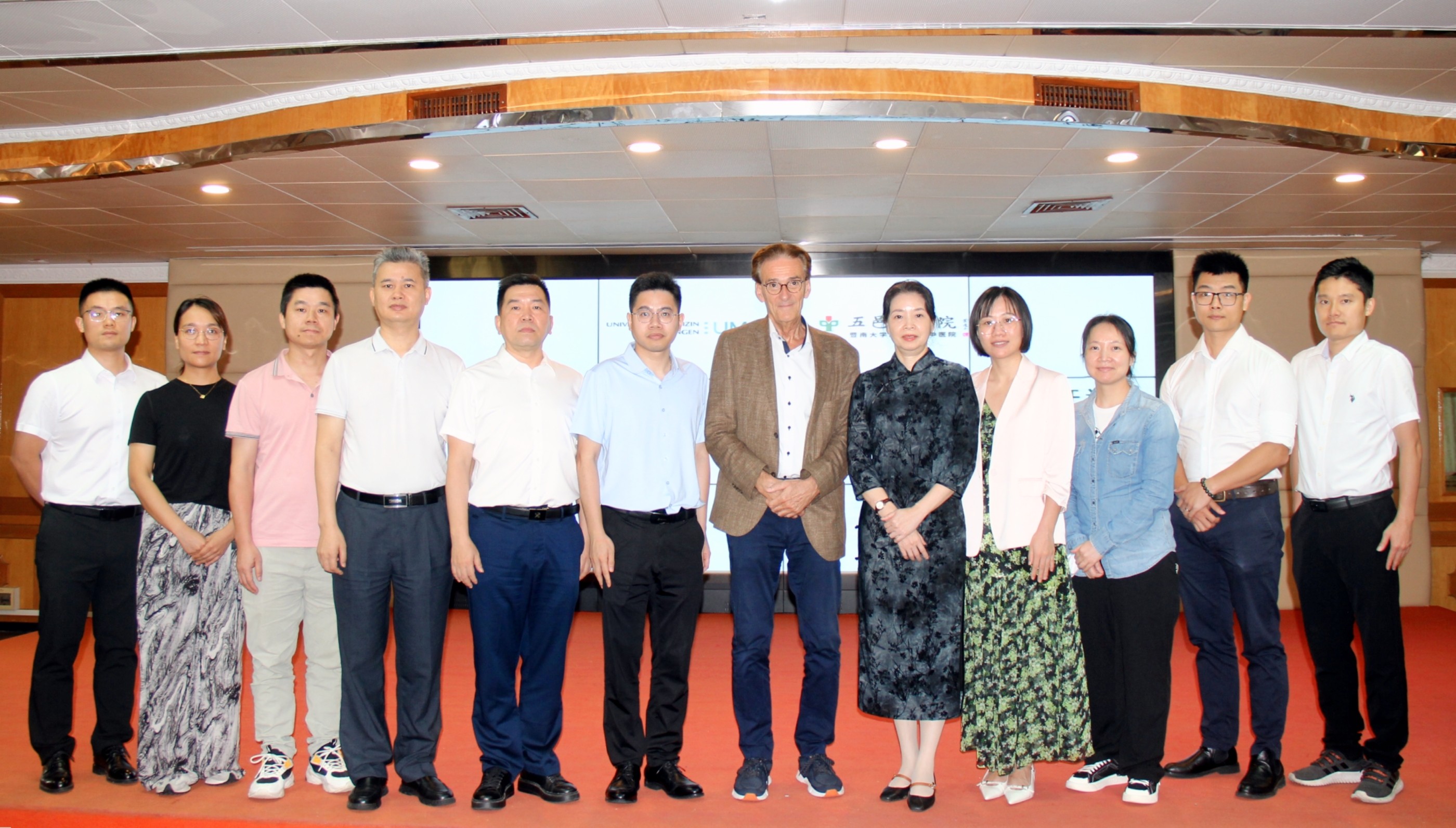
Prof. Bähr, under the theme of “Recruiting, internal teaching and talent development”, took neurology as the starting point, and shared in detail his 23 years of experience and insights in talent cultivation. His lecture covered various aspects such as the definition of a talent, how to attract talents, how to access talent channels, how to upgrade the quality of teaching and students, how to improve quality of training for scientific research talent and clinical talent, and the assessment objectives. He also talked about the cultivation of research and clinical talents, the doctoral training program for the Heart and Brain College, and the European training requirements for neurology published by the European Academy of Neurology.
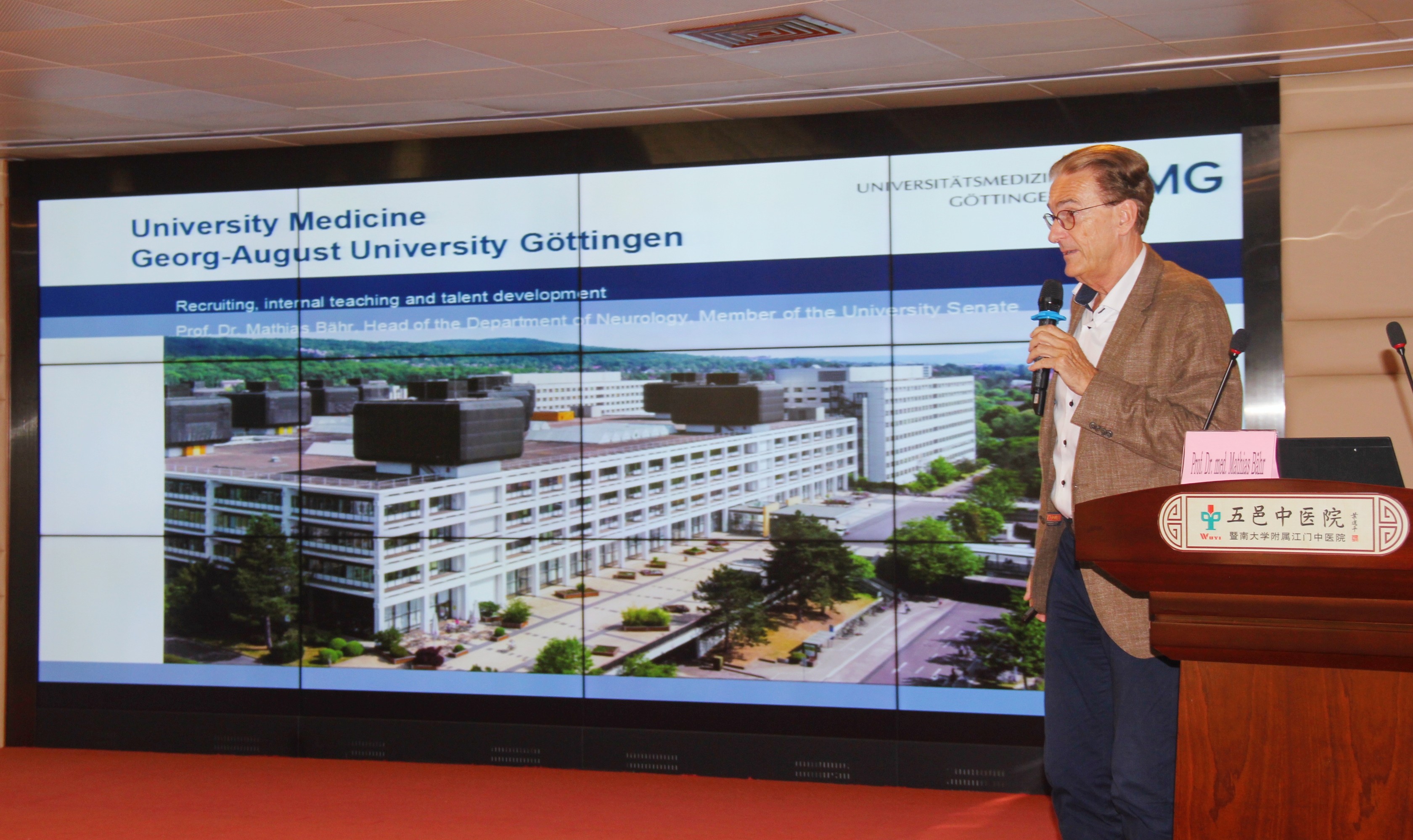
After Prof. Bähr’s lecture, hospital executives, as well as chiefs of various administration departments and clinical departments, engaged in deep discussion on topics such as talent incentive mechanisms, training and certification system, continuing education credit systems, comprehensive development of clinical skills and improvement of research capabilities. They also discussed some issues such as support from administration department to clinical departments, stimulation and cultivation of intrinsic motivation, personnel structure within the department, feedback on young physicians’ learning curves, and doctor-patient relationships. Prof. Bähr provided targeted suggestions based on what he had observed and experienced during his two visits to the hospital.
Perfect Closure
A wrap-up session was held on June 28 for Prof. Bähr’s two visits to Jiangmen.
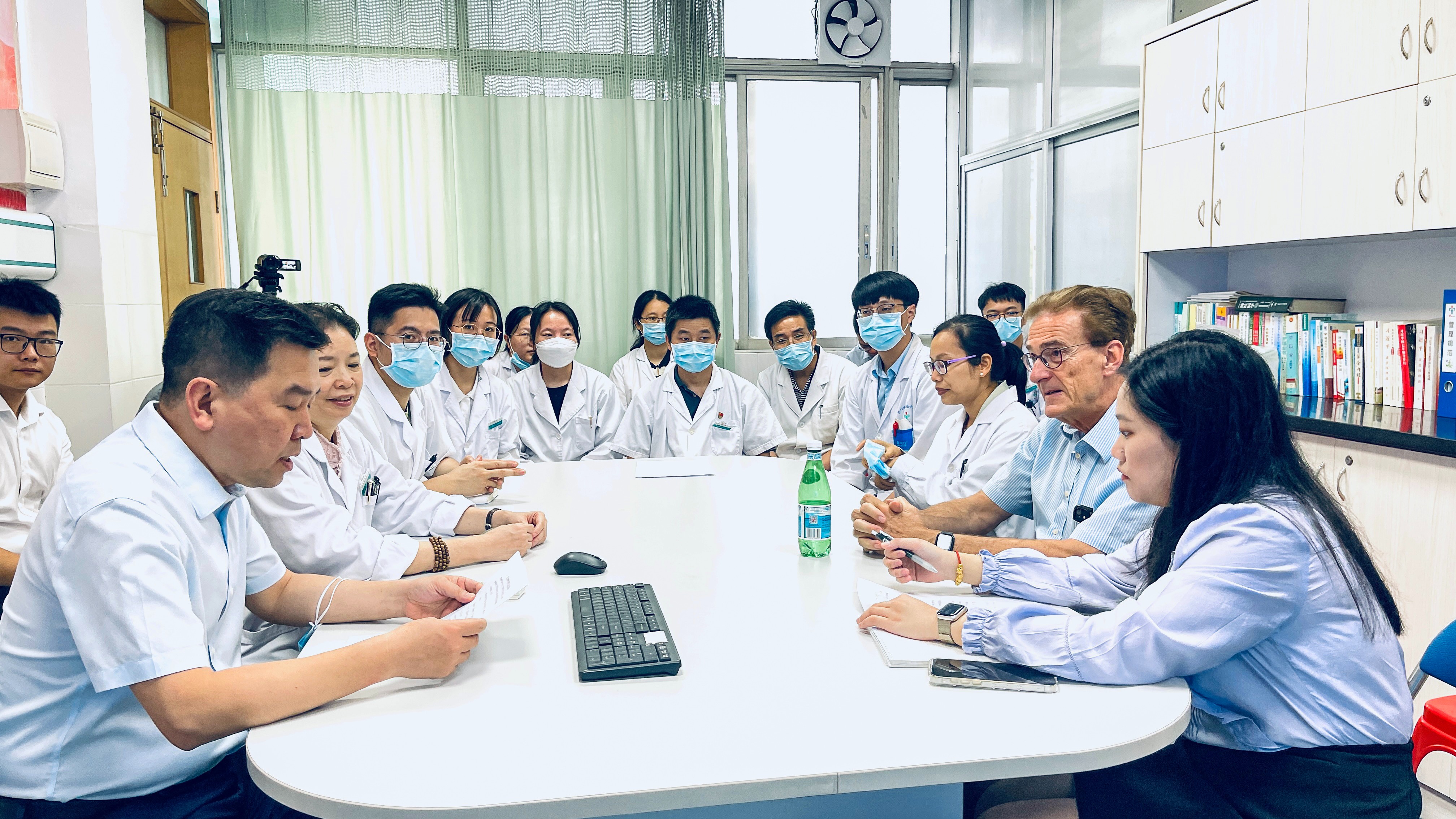
In his summary, Prof. Bähr mentioned that since his first visit in November 2023, he has seen a great improvement in all aspects of the neurology team, especially the young doctors.
During this week, he saw a general improvement in both skills in neurological functional localization and image interpreting, which he had suggested the young doctors to strengthen during his last visit. The young doctors made elaborate preparations for case presentations, outpatient history taking and reporting, and were highly engaged in outpatient clinic and internal case discussions, showing great ambition and motivation.
Prof. Bähr highly acknowledged the the development direction of the Department of Neurology led by Prof. YU Shangzhen and Prof. SHI Qing - to integrate traditional Chinese medicine and modern medicine for clinical care, try to prove the clinical efficacy of traditional Chinese medicine with modern diagnostic equipment and experimental techniques for research, and send young and promising doctors abroad for fellowship or doctoral studies.
Prof. Bähr has high expectations for CHEN Jianhua and hopes he will make the most of his time in Göttingen pursuing his doctorate, and further develop the clinical care, research and teaching of Jiangmen Wuyi Hospital of TCM after he returns to China with his doctoral degree. Prof. YU Shangzhen emphasized that the team should learn more from Prof. Bähr not only in terms of clinical and research expertise, but also in terms of his high work ethics, care for young doctors, and concern for the development of the field of neurology worldwide.
